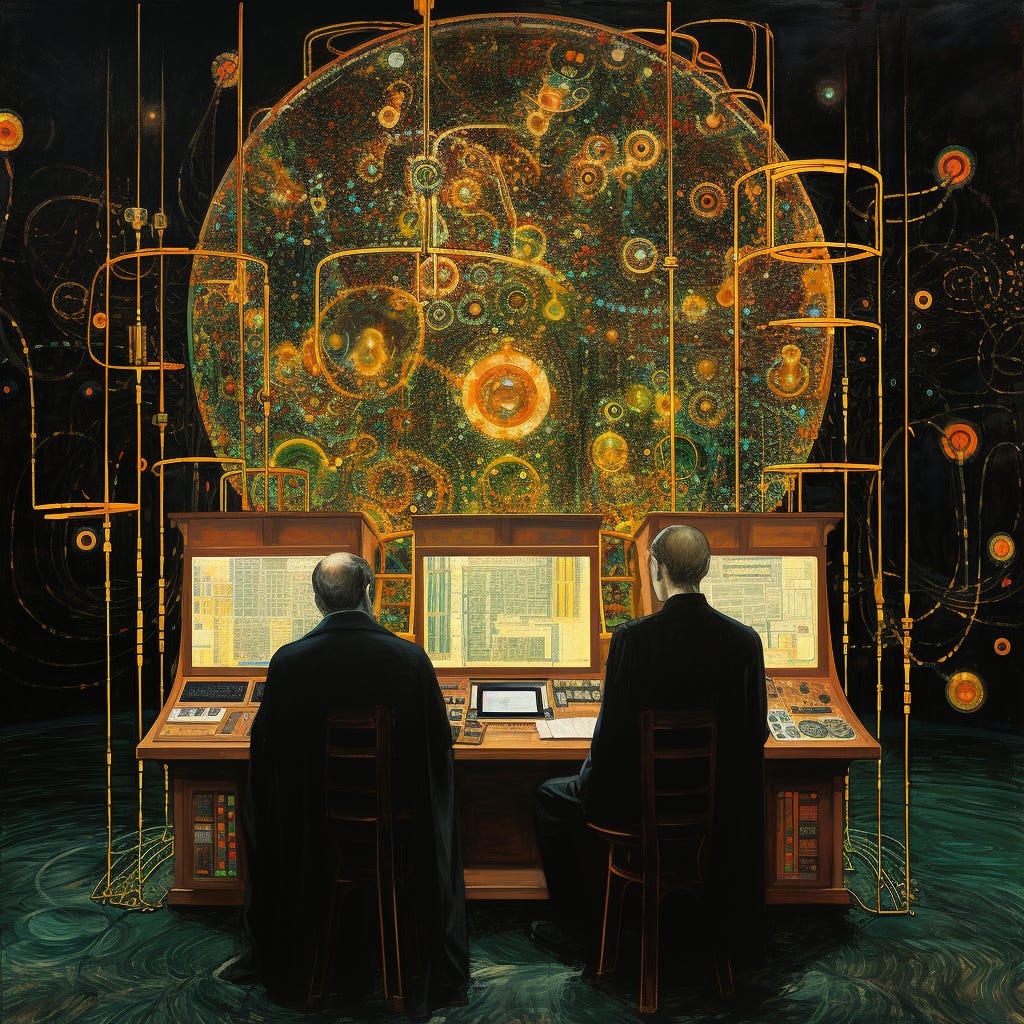Scrutiny and Machinic Creativity
On two forms of questioning
Two Forms of Questioning
Two forms of questioning have been amplified by recent and popularly-available advances in artificial intelligence.
First is that of the merely casual inquirer. As the effort and time costs of asking questions to ‘The Internet’ falls with tools like ChatGPT coming online, this form is a result of a questioner obtaining a high level of satisfaction from asking these tools questions and to carry out tasks of low and medium complexity. Not unlike people who ask inane questions on web forums as an excuse to socialize online, you will find that this type is not terribly interested in scrutinizing the results of their query, instead taking pleasure in the novelty of the process and the pseudo-socialization. The results are taken as they are, and typically are not fed into some other process. Even if their use of these tools increases in complexity, they are stymied by a lack of interest, rigor, and follow-through. This form of questioning is comfortable and there is little motivation to move beyond it.
Second is that of the ever-suspicious internet warrior. They are typically a veteran of internet fora where earnest intellectual sparring was the norm, even if such sparring was mixed with an equal measure of supremely juvenile and rude humor. Counterfeiting information, with images and text, with the expectation that peers would call it out, was part of the core social grammar in these circles. This helped participants build a fine sense for detecting fake and incorrect information, raised the bar for participating in conversation, and get a sense of how garbage content could be generated and abused.
As previously mentioned, AI-powered information generation reduces the time and effort required to create nonsense to virtually nil. Further, the ability of these tools to seamlessly compose1 with existing or new existing software means that adversarial information campaigns can be launched with relatively little labor. The ever-suspicious internet warrior immediately recognizes the threat. Having had their own fora ruined by griefers2 and likely having ruined fora themselves, they see how not only private spaces but also the public commons can become flooded with machine-generated plausible-sounding nonsense. Given the incredible computational mismatch between generating nonsense and refuting it — the latter is the most costly here, especially as the count increases — participants must develop heuristics for effectively sorting through media and determining what is worth considering seriously and what should be cast aside.
As people refine their heuristics for separating the content wheat from the chaff, it is inevitable that that much content produced by our flesh-and-blood fellows will be judged as falling short. And I think that as the signal-to-noise ratio for media online worsens, so too will the aggression of the heuristics in use. Heaps and heaps of human-generated content will be deemed “sub-ChatGPT” and dismissed.3
And this is fine. I am most interested in the ramifications of this trend on human creative life. Effectively, this raises the bar for human creativity and analysis, with respect to both soundness of concept and the ability to push beyond the abilities of mere machinic creativity. Membership in a creative peer group that can scrutinize your work with a critical eye has always been important for creatives, and the present issue only increases its worth. Every member of such a group needs to be able to readily identify (sub-)machinic creativity and push the entire cohort beyond it. They need to be able to judiciously incorporate machinic creativity in their their process, as well as create spaces where human mastery of human skills is encouraged and put on display. I expect the return of the viva voce format in both academic (exams) and informal settings (salons). I expect for clarity in speech and writing to become prized as signs of intelligence and genius, as they expose the person and their work to scrutiny of their cohort4 — hiding beyond sheer volume is a feature of machinic creativity.
Human creativity must be accelerated past the creativity of machines. And consistently so.
Composability of software components is a powerful and underrated property.
People ruining online communities with trolling and spam.
As I write this, I realized that this could be approached from the other direction as well. I will return to this point another time.
This does not mean I think people should necessarily write for a broad audience. One likely corollary of what I’m writing here is that creativity is best honed when that ‘broader audience’ is ignored, especially if they’re sufficiently satisfied with consuming mere machinic creativity without much thought.




What do you think about the idea of content vs action? A lot of these kind of articles focus on the former, while ignoring the latter, even when it might be the best way of proving the quality of one's ideas and philosophies.
Think Seppuku, though not necessarily that dire. Really, any kind of sacrificial action that would instantly elevate a piece of content above that of a machine. If the Japanese warriors used an act like that to prove their authenticity beyond any doubt when it concerned "man vs man", I don't see why the concept couldn't be adapted to "man vs machine".